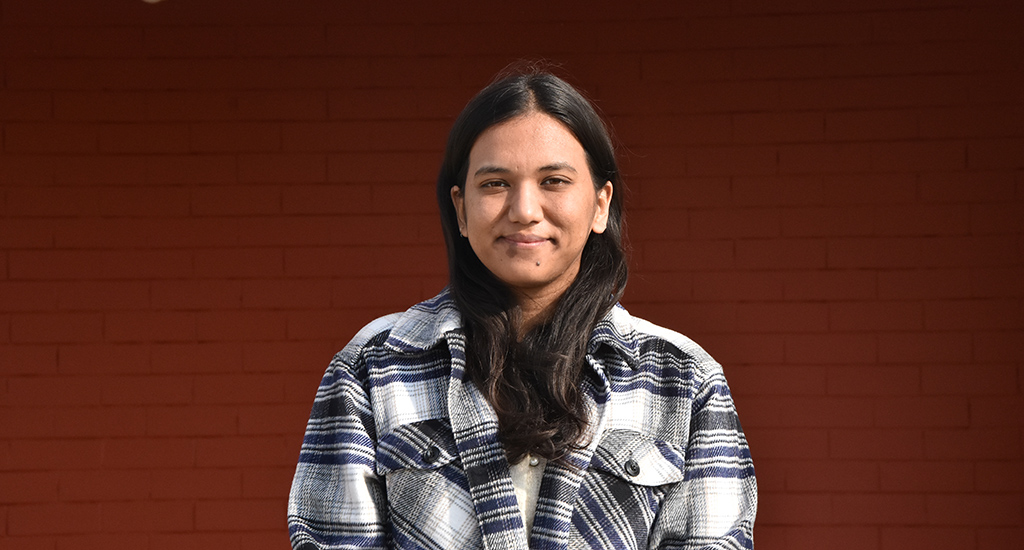Savita wakes up at 5 am every morning, walks a few kilometres to gather some fuelwood from her tribal village Bhilai Khari in the Nasrullaganj block of the Sehore district in Madhya Pradesh.
On her way back the 25-year-old fetches water from a hand pump and starts cooking for her family on a chulha.
Savita is like most women in her village who do not have an LPG gas connection.
I met Savita on a rural immersion trip, which is part of my development management programme. Groups of us were sent to different districts to understand the ground realities of societies and institutions.

Along with my group, I went to Sehore for two weeks. The field visits in the rural areas helped me understand the human-nature interactions where most rural communities are still dependent on their immediate environment, such as forests, for daily livelihood needs.
The close interaction with the community using participatory rural appraisal tools helped me identify the daily struggles of marginalised rural communities, especially women, and analyse their livelihood conditions.
Women’s everyday drudgery
While talking to the women from the community, I realised that the struggle of fetching water for domestic consumption is an everyday task, requiring vast amounts of physical labour.
And they usually make multiple trips to collect water from the hand pump.
The summer months are typically parched and the water in the handpump dries up. Which means that these women have to travel at least three kilometres to a nearby pond to bring water.

The same holds true for fuelwood.
Using wood-fired stoves
All the households in this village have the traditional chulha.
The bundle of fuelwood that these women carry weighs from 5 to 10 kilograms.
Out of 40 homes, 20 got an LPG connection three years ago.
We gathered that this was when the government introduced the Ujjwala Yojana scheme. The remaining households had their connections either wrongly delivered to other people or were not keen to use LPG. (ALSO READ: Cooking imposes heavy burden on rural women)
The Ujjwala Yojana aims to empower women and decrease drudgery by shifting to clean methods of cooking. It can save time and energy and avoid health-related issues among women in rural India.
But did it deliver?
Gaps in Ujjwala Yojana
Unfortunately, the Ujjwala Yojana scheme has been unviable due to lack of affordability and availability of services.
The rural communities cannot afford the refilling of the LPG cylinders – Rs 700 for every refill – due to financial restrictions. Almost 20 households with LPG connections have not been able to refill their cylinders due to a money crunch. They have gone back to using the chulha.
Another reason is the inability to carry cylinders to their house due to limited doorstep delivery.

There is a wide gap between the implementation of government schemes and the primary stakeholders’ requirements of that particular scheme.
Take the case of this small village in Nasrullaganj for instance. Many women like Savita might not be able to benefit from the Ujjwala Yojana, considering innumerable gaps which presently exist.
Addressing these gaps and effective community participation should encourage bottom-up decision-making processes.
Those who design the schemes need to stress the importance of evidence-based decision making. The focus here should be evidence collection through participatory method.
I also believe social security schemes should be constantly rechecked and evaluated to ensure their success.
The photo at the top of this page is that of Tenzin Chorran, a development management student at Indian School of Development Management, and this article’s author. (Photo courtesy Tenzin Chorran)








